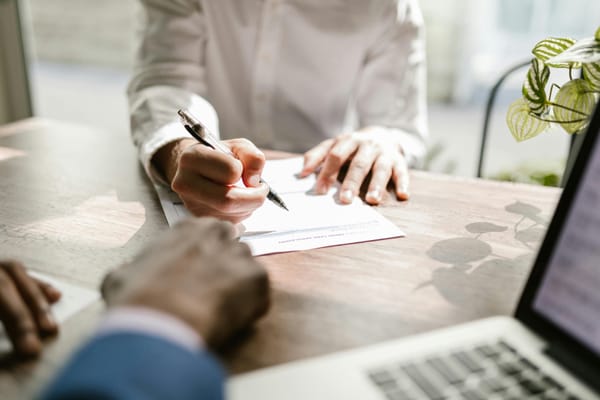Financial Minimalism: How Less Stuff Equals More Freedom

In today’s consumer-driven society, it’s easy to get caught up in the idea that more is better. From the latest tech products to larger homes and designer clothes, we’re constantly encouraged to accumulate more things. But what if the key to a more fulfilling life isn’t having more, but rather, having less?
Introducing financial minimalism — a growing movement that champions the idea of simplifying your finances and living with less. But this isn’t just about de-cluttering your closet or downsizing your home. It’s about reshaping your relationship with money, possessions, and your lifestyle in a way that promotes freedom, peace of mind, and long-term happiness.
What Is Financial Minimalism?
Financial minimalism is the practice of focusing on what truly adds value to your life and eliminating everything else that doesn’t. It’s about becoming intentional with your spending, reducing debt, and consciously curating your possessions so that your resources align with your values and goals.
In essence, financial minimalism is about making conscious choices that free you from the pressure of consumerism and allow you to invest in the things that matter most to you—whether that’s travel, experiences, relationships, or time.
But Wait... Isn’t Minimalism Just a Form of Self-Deprivation?
It’s a common misconception that minimalism means depriving yourself of everything you enjoy. Many people assume that adopting a minimalist lifestyle means you’ll have to live an austere life, giving up all comforts, experiences, and luxuries.
In reality, financial minimalism is about intentionality—not sacrifice. It’s about choosing to focus on what truly adds value to your life and eliminating what doesn’t. Rather than feeling deprived, minimalists often find they feel more empowered, because they’re no longer wasting time, energy, or money on things that don’t bring real happiness.
Minimalism isn’t about eliminating all pleasures or experiences. It’s about prioritizing the things that bring you the most fulfillment. Whether it’s spending quality time with family, traveling to new places, or pursuing a meaningful hobby, minimalism allows you to focus your resources on what truly matters, rather than constantly chasing after more things.
The Freedom of Less Stuff
You might be wondering: How can having less lead to more freedom? The answer lies in the way we perceive ownership, responsibility, and lifestyle:
Financial Freedom: The more you buy, the more you owe. When you accumulate possessions, you not only spend money on them but also on the upkeep, insurance, storage, and sometimes even the emotional weight of maintaining them. By focusing on purchasing only what you truly need or what adds real value to your life, you reduce your financial burden. You free up money that could be better used for savings, investments, or experiences that bring you joy.
Less Stress, More Peace: The more stuff we own, the more mental energy we spend managing, organizing, and worrying about it. Financial minimalism is a path to de-cluttering not just your physical space, but also your mental space. You may find that when you own fewer things, there’s less to stress about—no endless cleaning, no organizing, no anxiety over losing or breaking things.
More Time and Energy: Simplifying your finances often means simplifying your lifestyle. When you have fewer commitments tied to material possessions, whether it's a house full of things or a never-ending stream of monthly payments, you gain more time and energy to focus on the things that matter most—like pursuing passions, building relationships, or simply enjoying downtime.
Environmental Impact: Financial minimalism doesn’t just benefit your wallet and mental health—it can also contribute to a healthier planet. By consuming less, you reduce your carbon footprint and environmental impact. Fewer purchases mean fewer resources consumed and less waste, which is a win for both you and the planet.
Practical Tips for Embracing Financial Minimalism
If you're ready to embrace the principles of financial minimalism, here are a few tips to help you get started:
- Assess Your Finances: Take a close look at your spending habits. Are there subscriptions you no longer use? Do you buy things out of habit rather than necessity? Create a spending plan that prioritizes what’s most important to you and trims away the excess.
- Simplify Your Purchases: Before making a purchase, ask yourself: Does this align with my values? Will it improve my life in a meaningful way? When you make intentional purchases, you’re not just buying things—you’re investing in the lifestyle you want to create.
- Embrace Experiences Over Things: Experiences, such as travel or quality time with loved ones, often bring more long-term happiness than material possessions. Shift your spending towards experiences that enrich your life and create lasting memories.
- Downsize: If you have a lot of clutter, start by de-cluttering one room at a time. Sell or donate items that no longer serve a purpose in your life. Consider downsizing your home or apartment to reduce living costs and focus on the essentials.
- Automate Your Finances: Financial minimalism isn’t just about cutting back on spending—it’s also about making smarter choices with the money you do have. Set up automatic transfers to a savings or investment account so you can build wealth without even thinking about it.
Minimalist Financial Checklist:
Here’s a quick checklist to help you begin your journey toward financial minimalism:
- ☐ Review your current expenses and identify non-essential purchases.
- ☐ Create a spending plan that reflects your core values.
- ☐ Cancel subscriptions you no longer need or use.
- ☐ Set financial goals, such as paying off debt or saving for a specific experience.
- ☐ De-clutter your home and sell or donate items you don’t need.
- ☐ Automate savings to make wealth-building effortless.
- ☐ Shift your focus from acquiring things to investing in experiences and relationships.
The Long-Term Rewards of Financial Minimalism
Embracing financial minimalism isn't just a short-term solution for trimming your expenses; it’s a long-term investment in your financial well-being, mental clarity, and overall happiness. Over time, the benefits of a minimalist approach to money and possessions will lead to a more fulfilling and sustainable lifestyle.
- Emotional Freedom: The constant pressure to accumulate and compare yourself to others can lead to stress, anxiety, and feelings of inadequacy. Financial minimalism helps you let go of the emotional attachment to material possessions and the societal pressures that come with them. By choosing to live with less, you regain control over your emotional well-being, allowing you to focus on what truly makes you happy and fulfilled.
- Mental Clarity and Reduced Stress: When you simplify your life, you also simplify your mind. Financial minimalism allows you to focus on what matters, clearing away distractions and reducing the mental clutter that comes with constantly managing and worrying about material things. This can lead to better mental health, reduced anxiety, and a greater sense of well-being.
- Improved Physical Health: De-cluttering and simplifying your lifestyle can have a positive impact on your physical health as well. When you're not bogged down by the stress of maintaining excessive possessions or balancing numerous financial commitments, you have more energy to focus on physical wellness. This could mean finding time for regular exercise, preparing healthier meals, or simply getting better sleep—ultimately leading to a more balanced and healthier life.
The Bottom Line
Living with less doesn’t mean sacrificing happiness. In fact, it’s often the opposite. By shedding the weight of unnecessary possessions and focusing on what truly matters, you create room for greater freedom, peace of mind, and a more intentional, fulfilling life. Whether it’s more time, less debt, or the ability to pursue your passions, financial minimalism offers a pathway to a richer life—not just in terms of wealth, but in the freedom to choose how you spend your time and energy.
When you let go of the clutter—both physical and financial—you may find that you’ve unlocked a new sense of freedom, and in doing so, you’ve made room for the things that truly make you happy.
The simplest way to embrace financial minimalism?
Use the Finesse app to track your spending so you focus on the things that matter most to you.
Learn More



